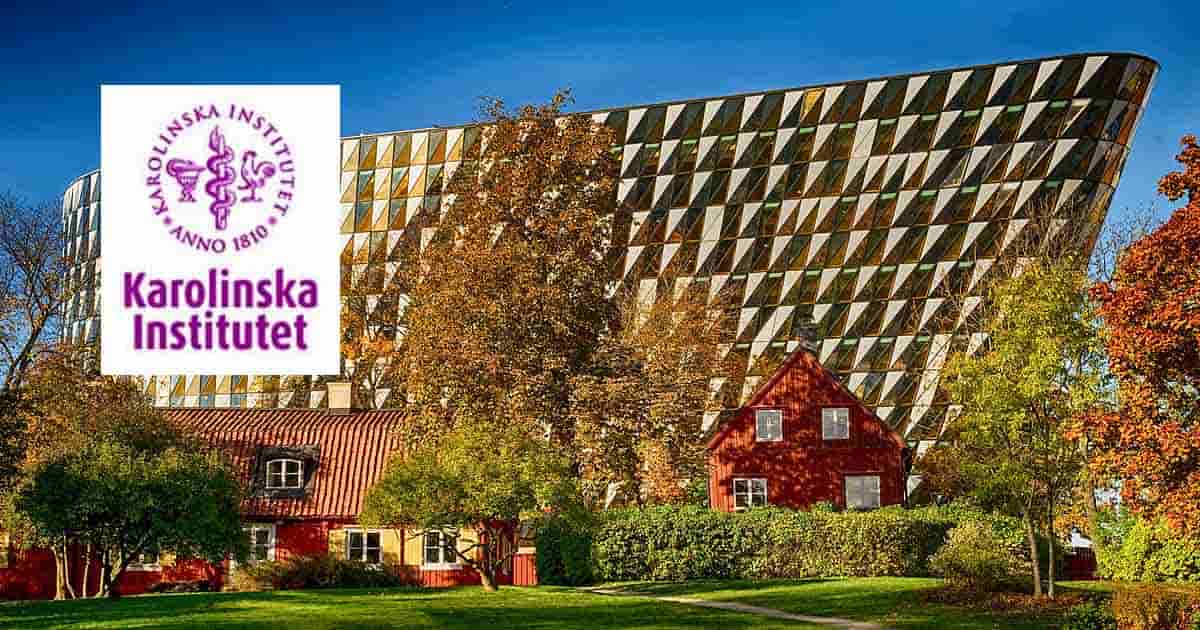The Department of Laboratory Medicine consists of seven divisions and is engaged in advanced basic scientific, clinical, and epidemiological research. The department is also one of the largest education departments at Karolinska Institutet. A postdoctoral position is now available at the Systems Virology Lab, Division of Clinical Microbiology.
The research
The Systems Virology lab aims to identify the molecular mechanism of host-viral response against RNA viruses using multi-omics technologies and experimental assays. We aim to identify the components of the immune response that are required for natural immune protection and linked with disease severity that can be translated into the future development of vaccine and antiviral strategies against emerging and re-emerging viruses. The research team has both bioinformatics and experimental teams and works in an interdisciplinary research environment. The present postdoctoral position is towards understanding the host-viral interactions in RNA virus targeting HIV-1 and SARS-CoV-2 and developing antiviral strategies through metabolic engineering. The potential candidate is encouraged to look into the group website https://ki.se/en/labmed/the-systems-virology-lab
Your mission
Are you interested to learn how our immune system interacts with viruses and can we explore virus weakness to eliminate it? We are looking for a Post-Doctoral researcher for our research theme, the correlates of immune protection against RNA viruses, who will work mainly to understand the immune-metabolic modulation during acute or chronic viral infection.
A major focus of the work will be on virus-host cell interaction and to determine the signaling pathways that drive virus-induced disease biology in HIV-1 and SARS-CoV-2. The ideal candidate will possess exceptional skills in virology, multi-color flow cytometry, and/or cell biology.
Preference will be given to those who worked with the BSL3 viruses and immune modulation of cellular pathways in the cell lines and primary cells. Expertise in the field of metabolism, loss-of-function screens and reverse viral genetics including CRISPR-Cas9 would represent a major advantage.
Your profile
Qualified to be employed as a postdoctor is one who has obtained a doctorate or has equivalent scientific competence. It is considered as an advantage if you have completed your doctoral degree within the last three years, if there are special reasons, your degree may have been completed earlier. Applicants who have not completed a doctorate at the end of the application period may also apply, provided that all requirements for a completed degree are met before the (intended) date of employment. This must be substantiated by the applicant's main supervisor, director or equivalent.
The ideal candidate will be two years after receiving the doctorate who can qualify to apply for funding for start-up grants from Swedish or European Union within couple of years.
Please read the qualification in https://staff.ki.se/information-about-researching-as-a-postdoctoral-researcher
The candidate should have achieved the corresponding scientific competence, with first-authored publications in internationally leading journals in the immunological fields with strong knowledge in developing high-dimensional multi-color FACS panels, loss-of-function screens and reverse viral genetics.
What do we offer?
Karolinska Institutet is one of the world's leading medical universities. Our vision is to pursue the development of knowledge about life and to promote better health for all. At Karolinska Institutet, we conduct innovative medical research and provide the largest range of biomedical education in Sweden. Karolinska Institutet is a state university, which entitles employees to several benefits such as extended holiday and a generous occupational pension. Employees also have free access to our modern gym and receive reimbursements for medical care.
The group has experience with two Swedish Research Council Establishment grants and several grants for Young Investigators. We will provide mentorship for applying grants potentially in own line of research within the field of emerging, re-emerging RNA viruses and encourage to use several grants.
Research Group:
The postdoctoral position is available in the Systems Virology Lab, Division of Clinical Microbiology, Department of Laboratory Medicine in Huddinge (KI South Campus, Flemingsberg). The candidate may have to travel to US and Germany to the collaborators' laboratory for some of the assays.
Location: Flemingsberg
Read more about the Department of Laboratory Medicine
Read more about the Division
Read more about the Research Group
Application
An employment application must contain the following documents in English or Swedish:
- A cover letter
- A complete resumé, including date of the thesis defence, title of the thesis, previous academic positions, academic title, current position, academic distinctions, and committee work
- A complete list of publications
- A summary of current work (no more than one page)
Welcome to apply at the latest 2022-04-30
The application is to be submitted through the Varbi recruitment system.
Want to make a difference? Join us and contribute to better health for all
| Type of employment | Temporary position longer than 6 months |
|---|---|
| Contract type | Full time |
| First day of employment | According to agreement |
| Salary | Monthly |
| Number of positions | 1 |
| Working hours | 100% |
| City | Huddinge |
| County | Stockholms län |
| Country | Sweden |
| Reference number | STÖD 2-766/2022 |
| Contact |
|
| Union representative |
|
| Published | 16.Feb.2022 |
| Last application date | 30.Apr.2022 11:59 PM CEST |

